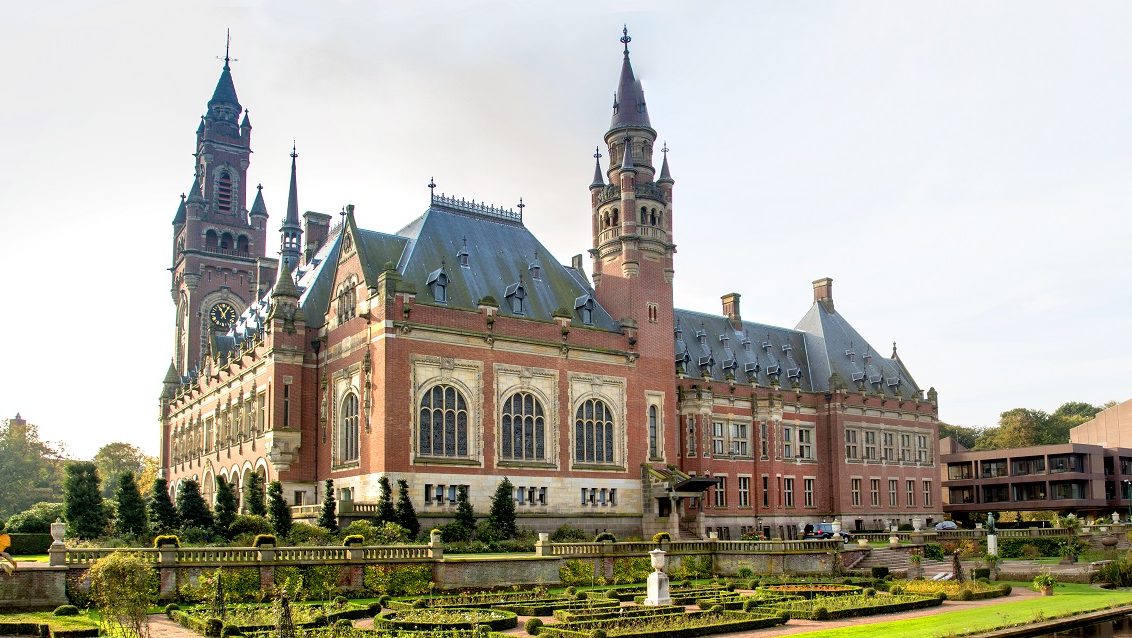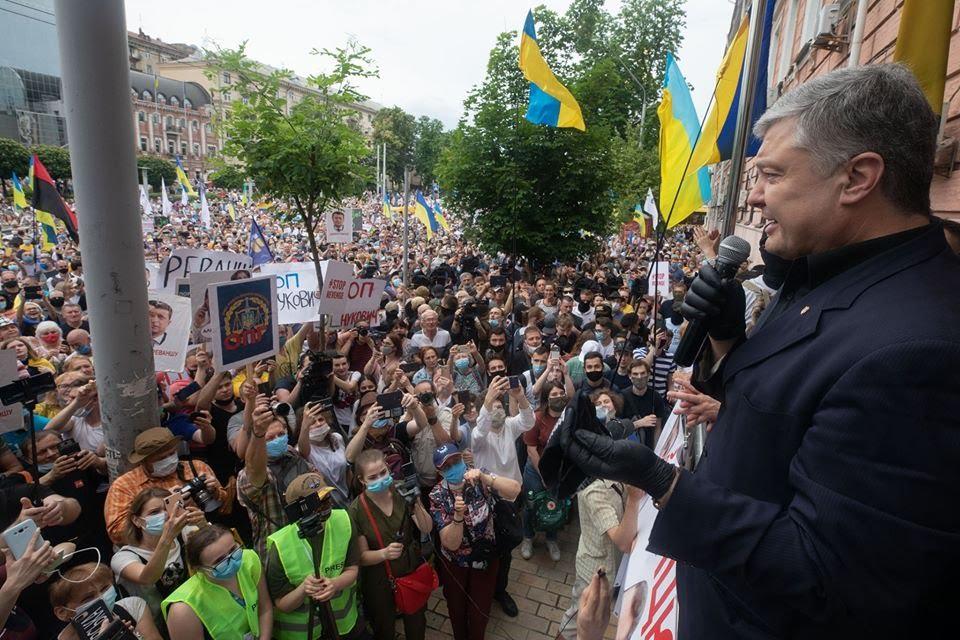“On 2 May 2018, having deliberated, the Tribunal issued its unanimous Award on the Merits, addressing issues pertaining to liability and damages,” the PCA press release reads.
Russia has to compensate for losses from 21 March 2014, when Russian President Vladimir Putin signed a decree on annexation of Crimea. It is expected that the Kremlin will appeal the decision of the Tribunal.
“The Claimants contended that, as of August 2014, the Russian Federation breached its obligations under the Ukraine-Russia BIT [1998 Bilateral Investment Treaty] by interfering with and ultimately expropriating their investments in real estate located in Crimea,” according to the PCA.
The PCA confirmed its jurisdiction over property relations in Crimea in the summer of 2017. Russia did not recognize the award, after which it began to ignore the case. As the court reports, after the hearing on the merits in this matter was held from 5 to 6 October 2017, the Tribunal invited the parties to file post-hearing submissions by 11 December 2017. On 11 November 2017, the Tribunal posed supplementary questions on valuation to the Parties, inviting them to respond in their post-hearing submissions. The Russian Federation did not file any post-hearing submissions. On 23 March 2018, the Tribunal declared the hearings in this arbitration closed.
The litigation concerns a number of residential and commercial properties in Russian-occupied Crimea, including hotels, apartment buildings, and individual residential apartments.
“The text of the judgment and the procedure remain confidential,” wrote Deputy Foreign Minister Olena Zerkal on her Facebook page, “We can inform that judges have recognized that:
a) Russia is responsible for its actions in Crimea based on the Bilateral Investment Treaty.
b) The so-called nationalization by the occupation authorities is a violation of the investment treaty.
c) Russia must compensate the affected companies $159 million, as well as compensate the litigation expenses.”
“Nationalization”
Illegal authorities of Crimea started the so-called “nationalization” of the Ukrainian-owned assets in April 2014 as Russia had just annexed the Ukrainian peninsula, and officially finished the seizure on the 1 March 2015.
The active stage of the wholesale confiscations began in August 2014, when the State Council of Crimea (its parliament) granted the local government the right to take property to maintain “vital activity.”
“Nothing was confiscated,” stated Vladimir Konstantinov, chairman of the State Council, when asked about the issue. “There is a procedure of forced redemption.”
The Ukrainian state-run organizations were forcibly moved forwards under the ownership of the “Republic,” and the assets of private companies were confiscated to include them into a list of the region-owned properties. Some of the owners sued the Crimean authorities in local courts, already Russian-run at the moment, but almost all rulings were in favor of the perpetrator of illegal seizures.
In total, Crimean authorities seized the assets of some 250 Ukrainian enterprises and organizations, according to RBC.
The latest ruling of the Permanent Court of Arbitration concerns only 18 Ukrainian companies and 1 private investor whose assets were seized in the occupied Crimea.
Russian-Ukrainian legal war in international courts
Infographic: Radio Svoboda (2017)
Ukraine continues to file lawsuits against Russia with international courts. Litigations between Kyiv and Moscow are expected to drag on for many years. Here are some examples of the cases being tried.
Read also: Legal war: Ukraine vs. Russia in international courts
Permanent Court of Arbitration, The Hague
In January 2016, Oschadbank filed a lawsuit against Russia to the PCA with respect to the loss of property in Crimea; similar appeals were submitted by Privatbank, Ukrnafta, Belbek Airport, the Stabil Company, and Everest Estate. And Russia has already lost the latter case as it has been mentioned above.
Last February, Ukraine filed its memorandum in arbitration proceedings against Russia under the UN Convention on the Sea Law, accusing it in violating Ukraine’s sovereign rights in the Black and Azov Seas and the Kerch Strait. The first results could be expected as early as 2019, according to Ukrainian Deputy Foreign Minister Olena Zerkal.
European Court of Human Rights, Strasbourg
Ukraine filed its first complaint with the European Court of Human Rights against Russia due to multiple human rights violations in the Crimea back in March 2014 in the course of the annexation of the Crimea, later it supplemented it with information on further violations in Crimea and in the Donbas.
For now, the ECHR is considering five lawsuits filed by Ukraine against Russia for the annexation of the Crimea and aggression in the Donbas. The European Court of Human Rights (ECHR) Chamber dealing with four inter-State applications by Ukraine against Russia has decided to relinquish jurisdiction over the cases in favor of the Grand Chamber on 9 May.
Meanwhile, 4226 applications submitted in the ECHR by private persons are linked to the Crimean and Donbas developments. Though only 257 were filed against Russia, 908 against both Russia and Ukraine, and almost 3,000 against Ukraine, Deputy Minister of Justice Ivan Lishchyna told.
Read also: European Court of Human Rights hints Russia responsible for Donbas damages
UN International Court of Justice, The Hague
In January 2017, Ukraine filed a lawsuit against Russia with the ICJ, accusing Russia of terrorism and discrimination during its illegal aggression against Ukraine. However, in March 2017, the Court rejected Ukraine’s call to impose provisional measures against Russia for its support of terrorists in the Donbas but acknowledged that Kyiv has a case against Moscow for discrimination in Russia-annexed Crimea.
A few days ago, the Security Service of Ukraine publicized a video containing parts of the multiple intercepted phone conversations between several direct participants of the rocket attack on the Donbas city of Mariupol in 2015, including a major-general in active service with the Russian Armed Forces. The findings of the investigation are being submitted to the International Court of Justice (ICJ) to support the case on Russia’s terrorism support.
High Court of London
In February 2016, Russia sued Ukraine in the High Court in London demanding the return of $3 bn Eurobonds that were credited two months before Viktor Yanukovych’s escape from Ukraine. The Court began considering Russia’s claim in January 2017 and later approved an expedited consideration of the Russian lawsuit. In June 2016, Ukraine submitted the necessary documents to the Court of Appeal to challenge that decision. At the conclusion of the hearing last January, the judges of the Court of Appeal “reserved their judgment until a later date.”
Stockholm Arbitration Court
In June 2014, Ukrainian oil and gas Naftogaz and Russian Gazprom sued one another in the Arbitration Institute of the Stockholm Chamber of Commerce, Ukraine demanded fair market price for gas, Russia expected compensation for gas arrears in 2014.
In May 2017, the Court has granted a full victory to Naftogaz in the case of the “take or pay” clause forced on Ukraine under the gas supply contract with Russia’s Gazprom.
Last February, the Stockholm Court obliged Russia’s Gazprom to pay $2.56 bn to Naftogaz’s in the final stage of a long-running legal battle. The ruling caused another Russian “gas war” against Ukraine, which lasted only a few days.
Read more:
- Russia’s March-2018 gas war attempt against Ukraine, explained
- Renewed Naftogaz-Gazprom tensions after Stockholm arbitration
- Stockholm court hands Ukraine victory over Gazprom’s “take or pay” claim: 5 things to know
- What Ukraine won and lost at the International Court of Justice
- Ukraine vs. Russia in The Hague
- European Court of Human Rights ruled Russia responsible for actions of Transnistria
- Ukraine must push its case about human losses in Crimea before the Hague ICC
- How much will Crimea cost Russians?
- Little green men: the annexation of Crimea as an emblem of pro-Kremlin disinformation
- Russia methodically destroys and removes cultural treasures from occupied Crimea
- Russia brags about “Russian” Crimea in DPRK atlas where South Korea “annexed” by North
- Stages of Russian occupation in a nutshell
- What assets did Russia’s puppet republics seize from Ukraine? Full list
- Military base instead of a resort: Crimea four years after the occupation
- Four years after annexation: Ukraine still connected with occupied Crimea, albeit weakly
- Three years later: Russia’s suicide by Crimea
- Three years later, Crimea abandoned by both Ukraine and Russia
- Two years after Russia’s takeover, no Crimean spring
- Chronology of the annexation of Crimea
- How it all happened – The Annexation of Crimea
- Ukraine may seek compensation for property losses in Crimea
- Russia seizes oligarch assets in Crimea
- Ukraine will sue Russia for losses in Crimea
- Russians seize Ukrainian Red Cross property in Crimea









